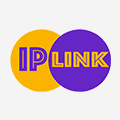After decades of walking slowly, AI seems to be accelerating towards a future full of lights. In November 2022, ChatGPT was launched and, almost5 days after its launch, more than a million people had already tried it. But what is it?
The name ChatGPT is an acronym for “Generative Pre-Trained Transformer”. It is an AI tool created by the American company OpenAI, capable of responding on a given subject, unlike what happens in a search engine, which only returns results. It is able to contextualize the results and create texts, lyrics, poems, programming codes, etc.
The tool became so successful that it scared off competitors. In January/2023, Microsoft bought part of OpenAI and, two months later, the company announced that, from now on, GPT-4 (the most recent and powerful version) will be allowed to browse the internet and search for information on other websites, as well as interact with other computers and third-party applications. ChatGPT only had access to the data that was used to “train” it: more than 45 terabytes of texts, copied from the internet by OpenAI in September 2021. It had no access to anything else after that, nor autonomy to search for information on the network. Now it has.
Google resolved to react. Being considered the leader in the searchtool market for a few decades, for the first time Googlesaw its main product threatened. Its biggest fear is that people migratefrom Google to ChatGPT. This sparked a wake-up call in the company, to the point where they called back Larry Page and Sergey Brin, founders of Google, to find solutions to combat this threat. One of the novelties brought in March was the launch of Bard, a conversational tool integrated with Google searches.
The ChatGPT architecture is based on a neural network called Transformer. It is an extremely advanced text generation model. Transformers-type algorithms are capable of writing unpublished texts, but in these texts, there will be no new ideas, only new ways of presenting the knowledge that has already been generated by human minds.
It is precisely at this point that the risk appears. Like all AI, ChatGPTuses the information it collects and, thus, undesirable responses may be generated, as it is trained with content available at the internet. Although the tool is managed to avoid inappropriate topics (by training the robot), there is no fraud protection in school and academic work, for example. To handle this issue, the company has been working on a “watermark” system that would be identified by other softwares.
A classic problem faced by AI is that it tends to reinforce biases. At Amazon, for example, AI-based software for curricularassessment has learned to pick people for certain jobs. But, in practice, it did not rank women for technical positions. This was because at Amazon the number of men's resumes was much greater than that of women for positions such as engineering and software development, and thus the robot understood that selecting men for the job was the most appropriate.
According to an article in Superinteressantemagazine, law professor at the University of Brasília and co-author of the Legal Frameworkfor AI, Ana Frazão, states: “The more a prejudice is ingrained, the more the machine tends to interpret that as a pattern, and to replicate it”.
And here another issue is addressed: the gender gap. The history of women is marked by countless challenges and struggles for rights and gender equality. Despite all the achievements, there is still much to be done to ensure that women in all countries have access to the knowledge, skills, resources and support they need for their personal and professional development.
In the field of technology, women have also played an important role. Ada Lovelace, considered the first programmer in history, created the first algorithm to be processed by a machine in 1843. Her work helped pave the way for modern computing and AI.
According to the United Nations - UN, AI reinforces gender inequality in the world of science. Despite representing more than half of the world's population, only one in three researchers is a woman. In engineering, for example, women represent a total of 28% of graduates, while in computer science and informatics this number reaches 40%. In 120 years of Nobel Prize, only 6% of the 947 awarded scientists were women.
In an attempt to minimize this gender disadvantage, large technology-related companieshave in recent years launched programs to train women in AI, as is the case at Microsoft.
Although on a much smaller scale, there are women leaders in this area like Dr. Fei-Fei Li, Professor of Computer Science at Stanford, a significant leader in the field of AI and an important voice in championing diversity in AI, and Daniela Rus, Director of the AI and Computer Science Laboratory at MIT, responsible for designing robots capable of reconfiguring themselves without human intervention. In Brazil, ManoelaMorais stands out. Along with other women, she created a solution for agriculture called Agrolly.
Discussions point out that women may be the most harmed by the spread of AI. This is because, according to Unesco and the World Economic Forum, they would have greater participation in activities that tend to be automated or replaced by AI, such as, for example, cashiers, receptionists and secretaries.
Specifically with regard to automation, an International Monetary Fund study concludes that “female workers have a significantly higher risk of replacement than male workers”.
This is the challenge to be faced: reconciling technological progress reliably and consciously with human needs without highlighting existing inequalities.






